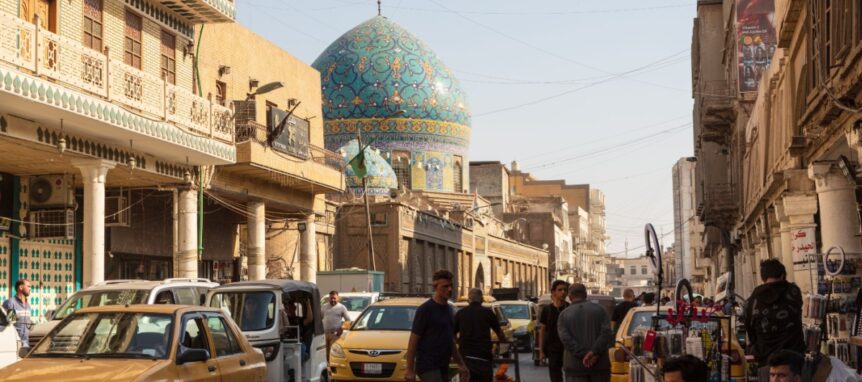In many instances, private companies have served in para-military roles, providing mission support, personal security, and training the Iraqi forces. Many of these contractors were former military and relied on their training to perform their duties. Contractors often worked side by side with U.S. service members, facing the same dangers and incurring many of the same types of injuries.
The work was not limited to private security firms. Contractors also represented aircraft and munitions companies conducting training and maintenance, as well as telecommunications and information technology specialists performing a variety of jobs essential to military operations.
Defense Base Act Coverage
Companies awarded contracts by the Department of Defense or by foreign governments with U.S. support must carry a specific type of workers’ compensation insurance. Known as Defense Base Act (DBA) insurance, this coverage provides wage replacement and medical treatment for contractors injured overseas.
There has been a long list of companies employing contractors in Iraq, and with the growing threat of ISIL, the need for additional private security contractors may rise as the U.S. seeks to limit its direct military presence.
Burn Pit Exposure in Iraq
One major issue for many contractors is the toxic smoke and fumes created by open-air burn pits. These pits were used to dispose of all types of waste, leading to widespread air quality concerns. Extensive litigation is ongoing regarding the use of burn pits and the diseases contractors later developed as a result of exposure.
If you were stationed in Iraq, subjected to smoke from these pits, and are now experiencing chronic health issues, you may have a claim under the Defense Base Act. The current known burn pit locations in Iraq include:
-
Abu Ghraib Prison
-
Al Asad Air Base
-
Al Quo
-
Al Taqaddum (Ridgeway)
-
Ali Air Base (formerly Talil Air Base)
-
Al-Sahra aka Camp Speicher
-
Baghdad International Airport (BIAP)
-
Balad Air Base
-
Baqubah (FOB Warhorse)
-
Camp Adder, Talil Air Base
-
Camp Al Taji (Army Airfield)
-
Camp Anderson
-
Camp Ar Ramadi
-
Camp Bucca
-
Camp Cedar I and II, Talil Air Base
-
Camp Chesty
-
Camp Courage, Mosul
-
Camp Cropper
-
Camp (FOB) Delta, Al Kut
-
Camp Echo, Diwaynia
-
Camp Geiger
-
Camp Liberty (aka Camp Trashcan)
-
Camp Loyalty
-
Camp or LSA Anaconda
-
Camp Ridgeway (Al Taquaddum)
-
Camp Rustamiyah
-
Camp Scania
-
Camp Shield, Baghdad
-
Camp Speicher aka Al Sahra Airfield (formerly FOB)
-
Camp Stryker
-
Camp Victory
-
COB Meade, Camp Liberty
-
Diwaynia
-
Fallujah
-
FOB Caldwell, Kirkuk
-
FOB Endurance, Qayyarah Airfield West/Saddam Air Base
-
FOB Freedom, Kirkuk
-
FOB Gabe, Baqubah
-
FOB Marez, Mosul
-
FOB Summerall (Bayji and Taji)
-
FOB Sykes (Tall’ Afar)
-
FOB Warrior, Kirkuk
-
Green Zone or International Zone
-
Kalsu
-
Kirkuk
-
Kut Al Hayy Airbase
-
Mosul
-
Navstar
-
Q-West, Qayyarah Airfield West/Saddam Air Base
-
Scania
-
Taji
-
Talil Air Base (now Ali Air Base)
-
Tall’ Afar
A wide range of conditions have been linked to burn pit exposure, including asthma, respiratory disease, digestive issues, cancers, and severe skin problems. Many illnesses are difficult to diagnose but are suspected to result from inhaling toxic fumes. Because of the complexity of these claims, representation from attorneys experienced in DBA burn pit litigation is essential.
Traumatic Brain Injury (TBI)
Often called the signature wound of the Iraq War, Traumatic Brain Injury (TBI) results from blows to the head or concussive blasts from grenades, bombs, suicide bombers, and improvised explosive devices (IEDs). While advances in body armor increased survival rates, the head remained highly vulnerable.
TBI can be difficult to diagnose, as imaging tests like MRIs or CAT scans often show normal results even when the injury is present. Symptoms may include memory loss, mood swings, headaches, dizziness, difficulty concentrating, vision problems, and other cognitive impairments. While initial symptoms may appear mild, the long-term consequences can be debilitating—physically, psychologically, and cognitively.
PTSD and Psychological Injuries
Another condition contractors frequently face is Post-Traumatic Stress Disorder (PTSD), now also referred to as Post-Traumatic Stress Injury (PTSI). This psychological condition stems from terrifying events or prolonged exposure to war’s horrors. Symptoms include flashbacks, nightmares, severe anxiety, mood changes, and difficulty maintaining personal relationships.
PTSD/PTSI may not manifest immediately after the traumatic event but may surface months or years later, triggered by stress or reminders of war. For contractors working in Iraq, this condition is recognized under the DBA, provided it is properly diagnosed and supported with medical evidence.
Protecting Your Rights Under the DBA
Contractors in Iraq have suffered from a broad range of injuries—physical, psychological, and medical. Navigating the rules, deadlines, and regulations of the Defense Base Act can be overwhelming, especially when insurers contest claims.
If you were injured or developed a condition while working in Iraq, it is critical to seek the guidance of an experienced Defense Base Act attorney. At Barnett, Lerner, Karsen, Zobec, P.A., our attorneys have the expertise and dedication to help you secure the benefits you deserve.

